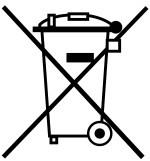What do the logos on packaging mean?
Is this recycled polymer pouch recyclable? Is this packaging ecologically responsible? Green Dot, Möbius strip, Triman, Tidy man... All these logos provide information on the origin, manufacture, or end of life of a product's packaging. They indicate materials or waste sorting instructions. But can you tell them apart? Are you sure you're throwing them in the right bin? In this short guide, we explain the symbols used on packaging
Logos for polymer materials
All polymer products must bear the triangular symbol with three arrows, indicating their recyclability. The abbreviations and numbers, graduated from 1 to 7, indicate the type of polymer used.
1: PET
Polyethylene terephthalate or polyethylene terephthalate: light and strong, this is the material of choice for flexible packaging manufacturers, mainly because of its surface polarity, which makes it easier for adhesives and inks to bond to. Its mechanical properties mean it can be used to make rigid bottles.
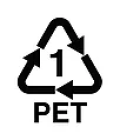
2 : HDPE
High-density polyethylene: resistant, water-repellent, and opaque. Used for packaging chemical products and products to be sterilised.
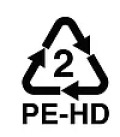
3 : PVC
Polyvinyl chloride: Plasticized, it keeps well in the cold and is used in red meat packaging and to preserve ready meals in the refrigerator.
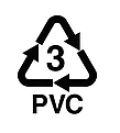
4 : LDPE
Low-density polyethylene: light, flexible and ideal for sealing, this is the polymer most commonly used as a sealing layer for flexible packaging.
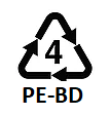
5 : PP
Polypropylene: highly resistant to corrosion, deformation, heat, and chemicals. It can be used to manufacture food packaging, especially as it is very well suited to packaging machines.
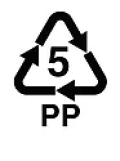
6 : EPS ou PS
Expanded polystyrene: this is a white, lightweight type of foam. It is used to manufacture insulation and transport protection. In the packaging industry, it is used to make rigid packaging.
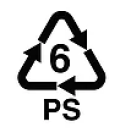
7 : Other polymers
PC, PTFE, melamine, rubber... Rigid or flexible, they are generally less recyclable than other polymers.
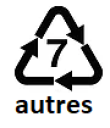
Logos associated with recycling
Recycling symbols are often a world of false friends. Having evolved considerably since their creation, they are often the source of confusion and errors when it comes to sorting waste. Here's what the packaging recycling logos really mean.
Green Dot
These two intertwined arrows are the little-known symbol that is the subject of debate in France, so much so that it is due to disappear gradually over the next few years, following the law on the circular economy of February 10, 2020
According to a 2015 survey by UFC-Que Choisir, 60% of French people believe that packaging bearing the Green Dot logo is recyclable. But that's not what it means at all! In fact, Green Dot indicates that the company manufacturing the product has joined and paid a contribution to a company responsible for sorting and recycling waste in France :
Citéo (formerly Eco-Emballages)
Adelphe
Cyclamed, which specialises in processing medicines.

The Möbius strip
Since 1970, the Möbius strip has been the universal symbol of recycling. It means that the packaging can be recycled to encourage selective sorting, but it does not mean that it will actually be recycled. It all depends on the infrastructure in which it ends up.
The percentage in the middle of the Möbius strip indicates the fraction of recycled materials used to manufacture the packaging.
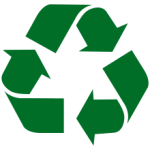
The OK Compost label
This logo represents compostable materials, i.e., materials that degrade 90% in six months under industrial composting conditions.
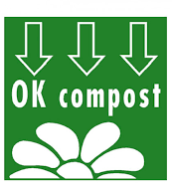
Triman logo
Triman, the hero of waste, was created in France in 2015. This little character and his three black arrows reveal recyclable packaging, which must be sorted accordingly. Initially featured on product leaflets and web pages, the logo must appear on all recyclable packaging since 2021.
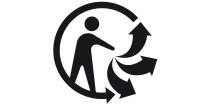
Recyclable steel or aluminium
These logos show that steel or aluminium packaging is 100% recyclable. However, like the Möbius strip, this does not guarantee that it is actually recycled
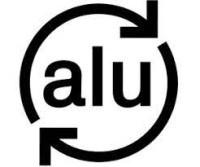
The Apur Label
This green leaf with a number on it is the sign of the Apur label, which defines the percentage of recycled paper and cardboard in the product.
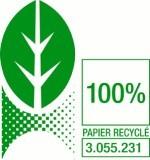
Environmentally-friendly logos
As well as recycling, you may come across logos that show that packaging is environmentally-friendly. Here are the symbols you need to know..
PEFC ou FSC
These two labels indicate that the paper, cardboard, or wood used in the packaging comes from a company that ensures sustainable forest management.
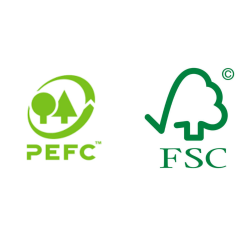
Paper or Ecofolio
Like Green Dot, this symbol indicates that the manufacturer pays a fee for waste management, currently to Citéo, which looks after the paper industry in France.
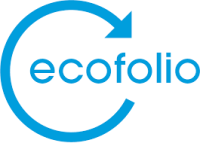
Ecolabels
EU Ecolabel, NF environnement, Paper by Nature... are environmentally-friendly labels signifying that products have been manufactured in accordance with a specific environmental charter.
Tidy man
Not to be confused with Triman, this old symbol simply encourages people to show respect for the environment by throwing the product in the bin after consumption.

The crossed-out bin
This logo is not the opposite of Tidy Man: you still have to dispose of your product, but not in just any bin. This is where you'll find waste that needs to be sent for specific treatment, such as WEEE (Waste Electrical and Electronic Equipment) or packaging containing hazardous products.
